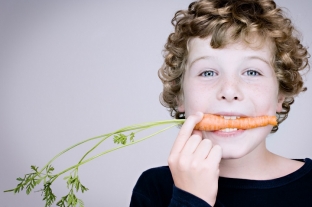Is pediatric dentistry different from adult dentistry? Indeed, in the first and in the second case, the doctor deals with dental treatment. However, there is still a very significant difference, and it is explained by many reasons. Why does caries appear, is it necessary to treat milk teeth, at what age is it better to correct the bite in children? Estet-portal.com answers the most frequently asked questions about pediatric dentistry, the causes of dental problems in children and methods for their solution.
At what age is it better to correct the bite in children?
The correct one is not only of aesthetic importance: it allows you to maintain the health of the gastrointestinal tract, reduces the likelihood of speech disorders, and prevents premature erasure of the enamel. Malocclusion in children is very often facilitated by bad habits (sucking a finger, using the nipple for too long, protruding the tongue), so the task of parents – correct such behavior of the child in a timely manner, as well as monitor his nutrition, since the lack of solid food in the diet, according to experts in the field of children's orthodontics, can also lead to malocclusion.

Therefore, at the age of 5 & ndash; 7 years, the child must be enrolled in an orthodontist, because:
• parents do not always notice the wrong bite in a child;
• this problem with teeth in children is most effectively solved at an early age;
• the psychological discomfort caused by wearing braces and mouthguards is much less than at an older age.
The correct one is not only of aesthetic importance: it allows you to maintain the health of the gastrointestinal tract, reduces the likelihood of speech disorders, and prevents premature erasure of the enamel.
We'll look at:
• features of dental problems in children;
• the problem of sports injuries of the teeth.
What are the main characteristics of dental problems in children?
A feature of milk teeth is unformed enamel, which differs in structure from a similar component of a permanent tooth. Therefore, in childhood, dental diseases occur more often and develop much faster than in adults. Therefore, children need to be shown to the dentist 4 times a year.
Many parents neglect the treatment of milk teeth, however, caries left unattended by a pediatric dentist often leads to the development of pulpitis, which is not only very painful for the child, but also worsens the condition of permanent teeth that have not yet erupted.
At a timely appointment, a specialist will be able not only to stop the progression of caries in children in a timely manner, but also to correct possible anomalies of dentoalveolar development, which, according to statistics, occur in 50% of children.
In children, dental diseases develop more often and much more rapidly than in adults.
Kids are often worried about stomatitis – diseases of the oral mucosa, the occurrence of which is the neglect of the rules of hygiene or the habit of constantly taking fingers, toys and other objects into the mouth. A pediatric dentist will help not only to cure existing diseases, but, more importantly, to prevent their occurrence and give parents professional advice on oral hygiene of the child.
When the first teeth appear, the child is not able to start caring for them, so this responsibility falls on the shoulders of the parents. In pediatric dentistry, the connection is especially visible when timely preventive measures and compliance with all the hygiene instructions of the attending physician can save the child from any problems with the oral cavity in the future.
Children grow and their needs change, but the need to keep your teeth and mouth healthy is always important. What foods should you bring to school with your child? How to protect your teeth while playing sports?
What to do if a child has a tooth knocked out
A common problem with teeth in children – their loss as a result of sports injuries. However, in this case, there is a chance that a qualified dentist will be able to restore the tooth to its original place.
What parents need to do:
• do not touch the root of the tooth, do not rub or disinfect it with antibacterial agents;
• hold a clean tooth by the part visible in the mouth and try to set the tooth in place;
• first rinse the contaminated tooth in milk or cold water;
• put the tooth in a handkerchief and call the dentist.
If you are unable to reattach the tooth, do the following:
• dip the tooth into a vessel of milk or, if that is not possible, hold it between your cheek and gum;
• do not let it dry and do not wipe it with disinfectants;
• go to your dentist immediately. If this is not possible, please contact the Help Desk and ask for the address of the nearest emergency dental clinic.
Protection of teeth from sports injuries:
It is best to consult a dentist who can fit a special mouth guard to protect your teeth from injury. Since the mouth guard is specially made for the child's mouth and is characterized by a higher level of protection than an ordinary one purchased at a pharmacy or supermarket. However, keep in mind that as the child grows, the mouthguard will need to be changed, so it will need to be shown to the dentist at a routine checkup.
Caring for children's teeth, timely treatment of caries, correction of bite, compliance with hygiene rules – important components of a child's oral health. Dental problems in children can be solved by contacting a qualified pediatric dentist or orthodontist, but they can be prevented by ensuring proper upbringing, nutrition and protection of the child from injury.






Add a comment